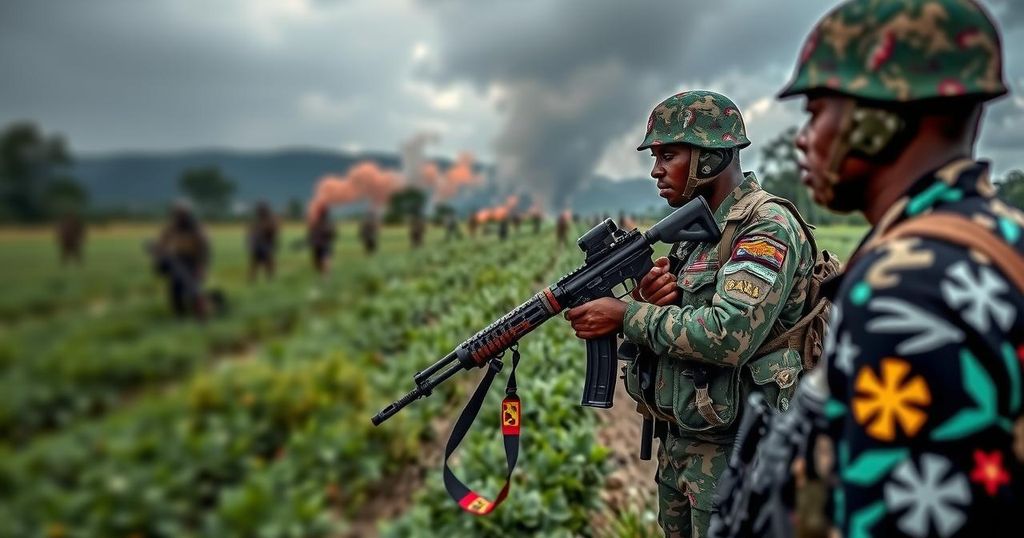Angola Accuses M23 Rebels of Ceasefire Breach in DR Congo

Angola accused M23 rebels of violating a ceasefire in eastern DRC, following clashes with the government-aligned Wazalendo militia that resulted in the rebels taking control of the town of Kalembe. The Angolan government condemned this act as a significant breach of peace efforts initiated since August 2023.
Angola has formally accused the M23 rebels, which are reportedly backed by Rwanda, of breaching a ceasefire agreement in eastern Democratic Republic of Congo (DRC). This ceasefire was established in early August following diplomatic efforts by Angola. Recent hostilities, particularly on a Sunday, involved clashes between M23 fighters and the government-affiliated militia known as Wazalendo in North Kivu province. This incident resulted in the M23’s occupation of Kalembe, with the Angolan government characterizing this as a “flagrant violation” of the ceasefire terms. Local sources indicate that fighting erupted early Sunday morning, with M23 rebels managing to take control of Kalembe after engaging in combat with the Wazalendo forces. However, Marcellin Shenkuku, a Wazalendo spokesperson, claimed that Wazalendo has regained control of the town and that no Congolese armed forces participated in these clashes. The statement issued by Angola is particularly notable as it addresses ongoing tensions typically observed between M23 and various militias aligned with the Kinshasa government, which often go unreported by governmental bodies. The M23 has been active since late 2021, successfully capturing significant territories in eastern DRC, thus contributing to a significant humanitarian crisis for local populations. The town of Kalembe, which houses approximately 40,000 residents, is strategically located on a crucial route leading to valuable mineral deposits in the region, which has been marred by violence from numerous rebel factions for decades.
The context of this situation lies in the ongoing conflict in the eastern Democratic Republic of Congo, primarily involving armed groups such as M23, which emerged as a significant military force following their reactivation in late 2021. The region is rich in minerals like gold, coltan, and diamonds, leading to considerable competition and conflict among various rebel groups as well as government forces. Angola’s mediation efforts to establish a ceasefire represent a diplomatic initiative aimed at stabilizing the region. However, the recurring violence indicates the fragile nature of peace talks in an area plagued by a complex interplay of local and international interests. The involvement of external actors, such as Rwanda, further complicates the dynamics of the conflict.
In summary, Angola’s accusations against the M23 rebels for violating the ceasefire highlight the precarious situation in eastern Democratic Republic of Congo. The recent clashes have intensified concerns over lasting peace in the region, as the M23 continues to assert control over strategically important areas. The unfolding conflict not only exacerbates humanitarian crises but also underscores the significant challenges faced by regional and international actors working toward sustainable solutions. The Angolan government’s response reflects its commitment to peace efforts, even amidst increasing hostilities.
Original Source: www.barrons.com








